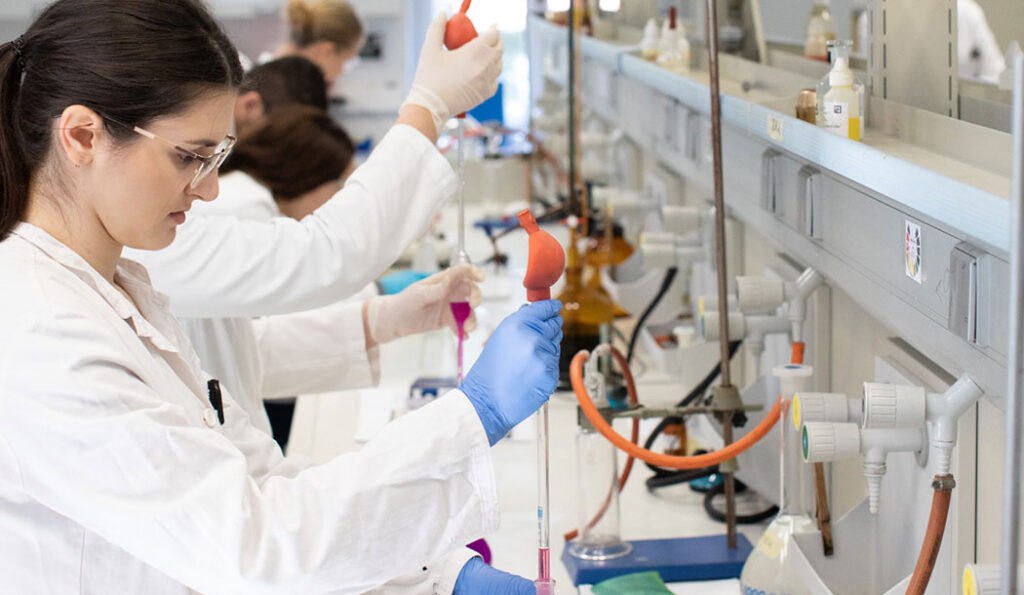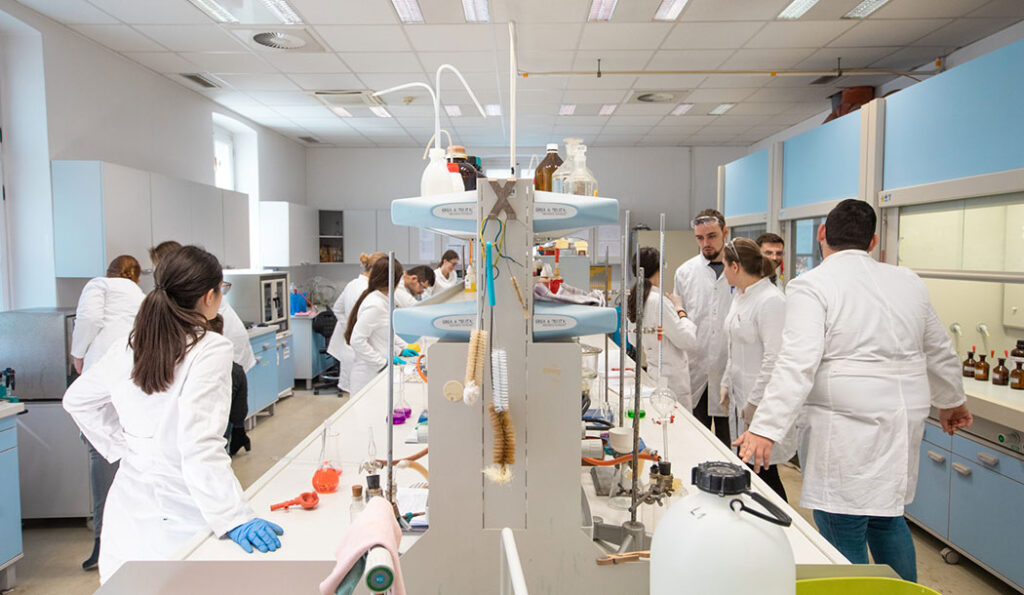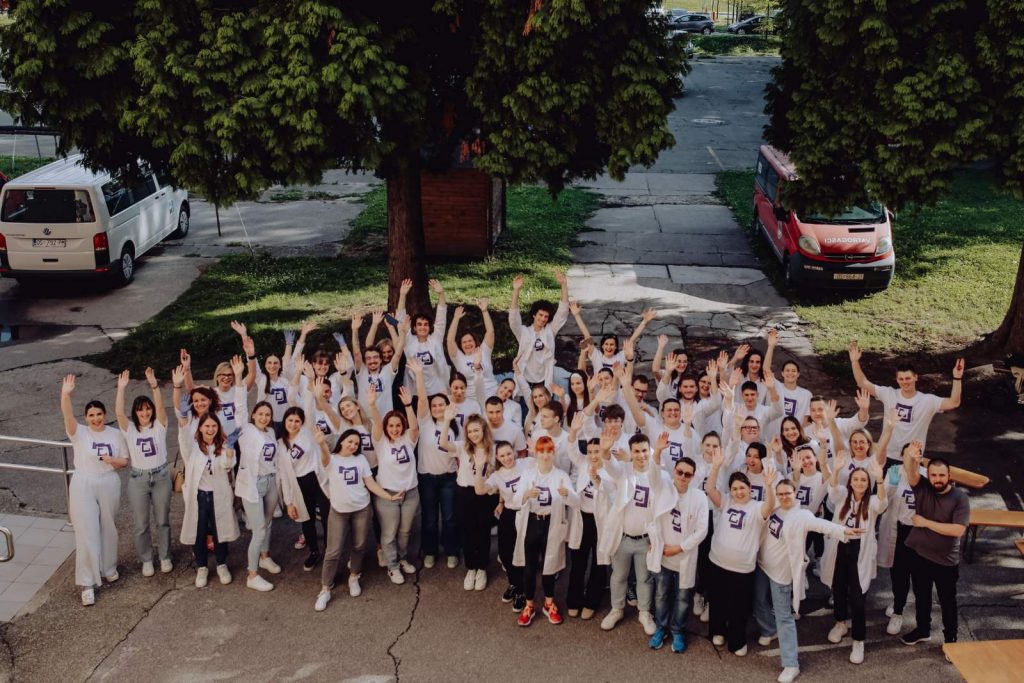Undergraduate University Study Programme Chemistry
Duration of study: three years, six semesters
Total: 180 ECTS credits
Academic title: University Bachelor of Science in Chemistry (univ. bacc. chem.)
About the study
The primary goal of the Undergraduate University Study Programme Chemistry is to ensure that students acquire knowledge according to the highest standards in the so-called first level of the higher education educational framework developed on the basis of the Bologna Declaration (Eurobachelor/Euromaster/Eurodoctorate).
Upon completion of the undergraduate study, a student can be employed in laboratories of institutes (scientific, development, industrial), university laboratories, factory laboratories, and similar public and private institutions as an expert associate, and in scientific and expert programmes of public information media. Employment in educational institutions in associate positions is possible.
A completed undergraduate student can enrol in graduate studies at the Faculty of Science and Mathematics, University of Zagreb and the Faculty of Science and Mathematics, University of Split.
Enrolment requirements
Completed secondary school (gymnasium, chemical technical school) or vocational school with at least a three-year programme in mathematics, chemistry and physics).



Learning outcomes at the level of the study programme
– determine the connection between atomic and molecular structure, the periodic table of elements and physical and chemical principles, and predict the properties and applications of substances.
– the knowledge about the structure of atoms, molecules and crystals based on atomic and molecular orbitals and molecular geometry.
– to critically judge the physical and chemical differences between gases, solutions and solids.
– to predict the types of chemical bonds and other particle interactions and the function of biologically important macromolecules based on their structure.
– to determine the concepts and principles of thermodynamics, electrochemistry, chemical kinetics and equilibrium, nuclear and radiochemistry and biochemical processes.
– to apply basic knowledge of reaction mechanisms and molecular structure of compounds in the synthesis of chemical compounds.
– to argue the basic theories and concepts of acids and bases and apply them to reaction systems such as buffer solutions, precipitation systems, as well as reaction processes such as neutralization and hydrolysis of salts.
– to solve problems by applying knowledge and skills in data processing, their interpretation and selection of appropriate mathematical and/or statistical procedures, processes and methods.
– to contribute to scientific literacy by planning and conducting research that includes various methods of sampling, identification and characterization of samples.
